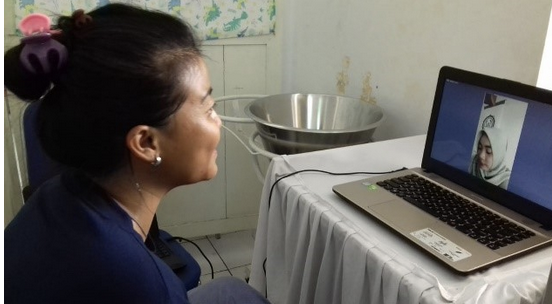Project
Take Action for the Future!
-
Amount Funded
24,939 EUROProject Duration
01 Nov 2019 - 31 Oct 2020 -
-
Lead organisation
-
PKBI is a non-governmental organisation engaged in the fulfillment of sexual and reproductive rights, especially with those who live in poverty, marginalised, and underserved. PKBI’s vision is to create a responsible and tolerant family, with the following mission: 1) Develop information centers, education and counseling programmes, and sexual and reproductive health services emphasising on quality family planning services, with rights-based and gender perspectives. 2) Empower communities to enable them to make the best decisions for themselves and behave responsibly in terms of Sexual and Reproductive Health. 3) Influence policymakers to provide support and commitment to ensuring the fulfillment of sexual and reproductive rights.
-
Organisation
PKBI is a non-governmental organisation engaged in the fulfillment of sexual and reproductive rights, especially with those who live in poverty, marginalised, and underserved. PKBI’s vision is to create a responsible and tolerant family, with the following mission: 1) Develop information centers, education and counseling programmes, and sexual and reproductive health services emphasising on quality family planning services, with rights-based and gender perspectives. 2) Empower communities to enable them to make the best decisions for themselves and behave responsibly in terms of Sexual and Reproductive Health. 3) Influence policymakers to provide support and commitment to ensuring the fulfillment of sexual and reproductive rights.
-
Project
The project Take action for the future! builds the capacity of women’s prisoners in Bulu, Semarang, Indonesia on their rights on gender-based violence and sexual reproductive status and integrates them back to the community after imprisonment. With an over capacitated prison and disproportional human resources, women prisoners from Bulu Semarang face various vulnerabilities. Some of these are: 1) insufficient provision of personal hygiene needs, especially by those rarely visited by their families; 2) absence of psychological support and assistance; 3) proneness to violence. These vulnerabilities put them at risk even after imprisonment.
This project is working towards having women prisoners who are healthy, are free from violence, and are able to prepare themselves for their return to their various communities. This is achieved through education on reproductive health rights, increasing family and prison staff support, facilitation of health and psychological support programmes, and prevention of gender-based violence.
-
-
The project Take action for the future! builds the capacity of women’s prisoners in Bulu, Semarang, Indonesia on their rights on gender-based violence and sexual reproductive status and integrates them back to the community after imprisonment. With an over capacitated prison and disproportional human resources, women prisoners from Bulu Semarang face various vulnerabilities. Some of these are: 1) insufficient provision of personal hygiene needs, especially by those rarely visited by their families; 2) absence of psychological support and assistance; 3) proneness to violence. These vulnerabilities put them at risk even after imprisonment.
This project is working towards having women prisoners who are healthy, are free from violence, and are able to prepare themselves for their return to their various communities. This is achieved through education on reproductive health rights, increasing family and prison staff support, facilitation of health and psychological support programmes, and prevention of gender-based violence.
-

Counseling session with psychologist All the target groups (the inmates, family, and officers) gained a knowledge about sexual and reproductive health and rights, sexual and gender-based violence, and mental health. They feel humanized and their presence are recognized.
In periodic meetings between the inmates and their families are quite intense. Resource persons use interactive methods, so even though they are online, they are not boring. In this periodic meeting, closeness between the inmates and families who were previously less close were also built. This meeting was quite interesting because it was held in a pandemic situation, where families did not have the opportunity to visit prisons. The use of online media allows families from various cities to join.
There are also some changes, such as the inmates are no longer use toothpaste to ‘clean’ their private area, they also apply the relaxation method as well as in elderly exercise, the family of the inmates are calmer and more positive in giving support after they know the real condition in prisons through virtual meetings.
At the national and provincial levels of Central Java, PKBI has signed a Cooperation Agreement (MoU) with the Ministry of Law and Human Rights for the guidance and education of the inmates. This is a good asset for PKBI Central Java to cooperate with LPP Class IIA Semarang. They are very open to collaborating and collaborating with the Central Java PKBI for mentoring and coaching WBP. This is stated in the MoU between LPP Class IIA Semarang and PKBI Central Java.
The lesson learnt when PKBI held this project is so far, the training at LPP has focused more on hard skill training such as sewing, batik, embroidery, salon, screen printing, barista, t-shirt painting, etc. Meanwhile, soft skill assistance such as education on SRHR, SGBV and mental health is rarely done. If anything, the method of delivery is monotonous lecture. Thus, when this project uses a more interactive, humanizing and touching approach to the PAPs, it leaves a deep impression on the PAPs. “This is what I need!”
During the project, there are also some impacts. First, the officers participating in the training disseminate information to other officers through the monthly staff meeting forum. They also are more humane in providing guidance to the inmates. Second, the inmates who have been trained invite their friends to relax with their roommates every time they wake up. Some of them feel that they have been humanized, so that they are more optimistic about their post-freedom future. Third, the relationship between the family is much better. They understand the condition of their children.




